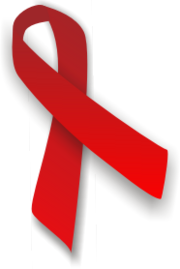HIVAIDS/Legal Ethical Moral Issues
HIV/AIDS
- Introduction to HIV/AIDS
- Overview of HIV/AIDS
- Health Promotion and Prevention of HIV
- HIV the virus
- AIDS and Opportunistic Infections
- Legal, Ethical, Moral Issues
- Mental Health and Spirituality
- Issues for Women and Children
- Sex workers and Intravenous Drug Users
- The face of HIV/AIDS
- Care of people with HIV/AIDS
- Community support and alternative therapies
- Critiquing literature and poster assignment
- Assessments
- Picture Gallery
Legal, Ethical, Moral Issues
To do
- There will be two weeks of moderated discussion on the group email forum.
- If you have accepted an invitation to join you can send an email to the group by emailing from your usual email address to: hivrn@googlegroups.com
- Follow the instructions below.
Assessed moderated discussion
This week you start a discussion which will be moderated by Anne Coup from the Nursing School at Otago Polytechnic. This is part of Assignment One. There are several parts to this exercise.
- Work through the example scenario following the steps below - this is not assessed.
- Provide a scenario of your own from clinical practice or from your reading for discussion - assessed.
- Respond to at least three discussion postings from other participants during the discussion - assessed.
- Write a reflection about your participation - assessed.
- Optional - You may also wish to work through and discuss the two examples: Scenario one - trauma surgeon; Scenario two - parents and child. The scenarios can be found in the Library of Resources area of the course if you are looking for them later. Your moderator will guide you in this.
- For full details about the assessments in the course, you need to read the information in the Assessment section.
Part A - Example scenario
Work through the example scenario which is provided. This is taken from the assessment document.
- Step one - as you read the following scenario, consider the legal, ethical and moral issues.
- Student nurses currently have to provide laboratory evidence of their Hepatitis B, Varicella and Rubella status. They are also screened for Tuberculosis when they enter the program. It has been suggested that student nurses should also be screened for HIV before entry to the program.
- Step two - explanation of ethical principles and health care law.
- (a) Ethics: You may choose to explain how each of the following ethical principles is relevant in this situation. Autonomy, Beneficence, Non-maleficence, Justice. (For definitions of the four principles refer to the books listed below.)
- (b) Health care law: Familiarise yourself with the Human Rights Act 1993 - this describes the ‘areas’ in which it is unlawful to discriminate against people. (A book to assist with this topic is referenced below.)
- Step three
You could pose the following questions in order to stimulate discussion:
- Would it be lawful to decline an application to nursing because the person was HIV positive?
- Would it be lawful for an employer to refuse the appointment of a registered nurse job applicant because of her/his HIV status?
Part B - Your example for discussion
- From your reading or practice experience in relation to HIV/AIDS, provide an example of a situation where stigma or a legal/ethical issue has arisen in the nursing context.
- Initiate a discussion on-line (using the forum provided) with your colleagues about any aspect of stigma or the legal/ethical issues related to HIV/AIDS.
- Explore the relevant Acts of Parliament/ ethical principles in order to be certain that your response is correct.
Part C - Responding to others
- You are asked to respond to at least three discussion postings from other participants on the email forum.
Part D - Reflection on your participation
- Reflect on how well you feel you participated and contributed to the topic.
- Write an A4 one page summary of your discussion experience.
Books
The following books contain information about the four ethical principles and health care law. Distance students can contact the library and have copies emailed or posted.
- Farrell, M. (2005). Smeltzer & Bare’s medical-surgical nursing. NSW., Australia: Lippincott Williams & Wilkins (p.27).
or
- Johnson, S. (2000). Health care and the law. Wellington, New Zealand: Printlink. (Chapter 19). or any ethics nursing text
Marking Criteria
The first two criteria will need to be demonstrated during the two weeks of moderated discussion, and you are expected to actively and critically participate and provide at least three responses to postings from other participants. The third criteria will be demonstrated in the A4 summary.
- Critical discussion includes reference to relevant Acts of Parliament and Codes of Nursing Ethics (7.5%)
- Critical response (7.5%)
- Reflection on own participation (5%)
